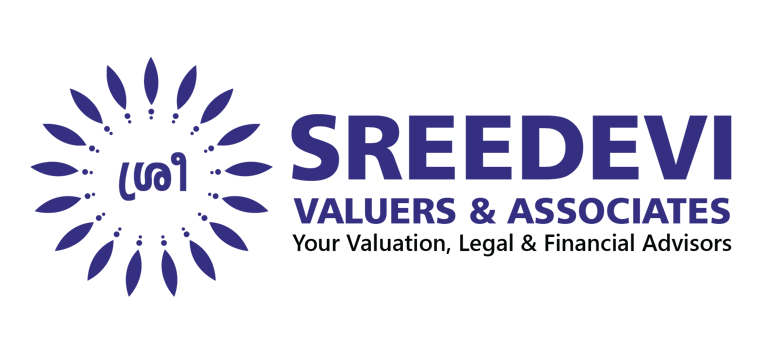Valuation in Indian Lending: Fee Suppression, Role Conflicts, and the Case for Independent Expertise
Blog post description.
T Sujesh Nair MRICS, FIV, FIIV, MIE
10/28/20254 min read


Valuation in Indian Lending: Fee Suppression, Role Conflicts, and the Case for Independent Expertise
By T Sujesh Nair MRICS, MIE, FIV, FIIV
Registered Valuer, Compliance Strategist, Ethical Training Advocate
In India’s secured lending ecosystem, property valuation is meant to serve as a professional safeguard, viz; anchoring loan decisions in objective asset worth. Yet, the treatment of valuation professionals by leading financial institutions reveals a troubling pattern: suppressed fees, compromised independence, and systemic disregard for profession and complexity involved. These issues not only undermine professional integrity but also expose lenders to long-term risk.
Let us take a peripheral tour of the realities in Indian lending and why lenders should not have any role in valuation profession and valuation opinion.
Fee Structure and Revision Without Rationale
As of 2025, banks like ICICI and HDFC have revised their valuation fees to a modest range of ₹1500–₹2000 per assignment. While this appears progressive compared to the ₹800 fee offered in 2011, the revision lacks any logical correlation to present-day costs or the value proposition of professional valuation.
Fuel, manpower, and digital compliance costs have surged, yet fee structures remain arbitrarily capped.
No differentiation is made based on property type or complexity – valuation fee for a retail flat and a multi-use commercial asset are priced the same.
Income-generating properties and project finance cases, which require multiple valuation methods and deeper analysis, are treated with the same fee, pricing logic as routine residential assessments.
This flattening of complexity into a restricted fee band reflects a fundamental misunderstanding of valuation as a technical discipline. It reduces a nuanced professional service into a transactional checkbox.
The In-House Model: Cost-Efficient but Ethically Fragile
To further reduce costs, many banks have adopted the in-house valuation model. From a modest pool of 100–150 in-house valuers in 2011, the number has now surged past 5,000. While this model offers operational control, it introduces deep ethical risks:
In-house valuers are salaried and performance-linked, with growth tied to business support rather than independent judgment.
Valuation becomes a tool to qualify loans, not assess risk. The pressure to meet loan-to-value ratios fosters a tendency to fudge figures.
Credit managers, though custodians of lending decisions, often intervene in valuation, seeking to suppress negative recommendations to hide inherent risks.
Sales teams, driven by conversion goals, influence valuer selection, endorsing only those who align with their targets.
This convergence of interests—sales, credit, recovery and valuation—erodes the independence of the process. Valuers are caught in a web of expectations, often forced to dilute their findings to avoid friction.
A Firsthand Account: Credit Manager Interference
Early in my career, I encountered a situation that revealed the fragility of valuation independence. A credit manager disclosed to me his lack of confidence in a borrower’s financial and overall profile. Although my valuation report confirmed that the property met the loan requirements, he insisted I revise the figures downward since he wasn’t comfortable in approving the loan.
As a support function at the time, I complied, reluctantly. The revised valuation snowballed into a major issue. The sales team, unaware of the credit manager’s intervention, accused me of manipulating the figures to block the loan. My explanations fell on deaf ears. Their question was simple and persistent: “Why did you listen to the credit manager?”
This incident underscored a critical flaw in the system: credit managers, while responsible for lending decisions, should not interfere with valuation judgments. Their vested interest in minimizing risk can lead to undue pressure on valuers, compromising objectivity.
Recovery Teams: Retrospective Blame and Hidden Agendas
When loans turn delinquent, recovery and collections teams enter the picture. Their mandate is to recover dues, often through asset auctions. But their perspective on valuation is shaped by hindsight and sometimes, personal interest.
They often claim original valuations were inflated, hindering asset disposal.
They push for lower reserve prices, citing lack of buyer interest.
In some cases, vested interests emerge; relatives or contacts of recovery managers seek discounted purchases, prompting internal pressure to revise reserve prices downward.
One case in North Kerala revealed this dynamic starkly. A property flagged as incomplete was initially given a negative recommendation. But the “not recommended” tag was removed under pressure from the credit team. Later, the recovery team accused the valuation of being inflated; despite clear documentation. Further investigation revealed that a relative of the recovery manager had expressed interest in buying the property, triggering the push to lower its reserve price.
This manipulation follows a familiar pattern:
Maintain distress value at original fair market value or initial distress value (at the time of lending) to avoid scrutiny.
Claim no buyers are available at that price.
Recommend gradual discounts until the reserve price matches insider expectations.
Institutional Disconnect: Role Conflicts and Ethical Drift
Each stakeholder in the lending process – sales, credit, recovery has a distinct mandate. But when these roles overlap or interfere with valuation, the consequences are severe:
Sales teams prioritize conversion, often endorsing valuers who align with their targets.
Credit managers seek risk containment, sometimes pressuring valuers to revise figures, findings and opinions.
Recovery teams conduct postmortems, often blaming valuation for outcomes shaped by broader institutional choices.
Valuers, are left navigating a minefield of expectations, compromises, and retrospective scrutiny.
Conclusion: Independent Valuation Is Non-Negotiable
Valuation is not a transactional service; it is a professional judgment with long-term consequences. To restore credibility and safeguard lending integrity, secured lending valuations must be conducted only by independent registered valuers who are not employees of lending institutions.
This structural separation is essential to:
Preserve objectivity in asset appraisals
Prevent influences from sales, credit, or recovery teams
Ensure accountability across the loan lifecycle
Recognize the complexity and diversity of valuation assignments
Justify fees based on effort, expertise, and risk exposure
Banks must move beyond cost-efficiency models and embrace ethical resilience. Valuation is not just a number; it is a boundary between prudence and peril.
+91-9207186666
© 2024. All rights reserved.
SUPPORT
Terms and conditions
Privacy policy
